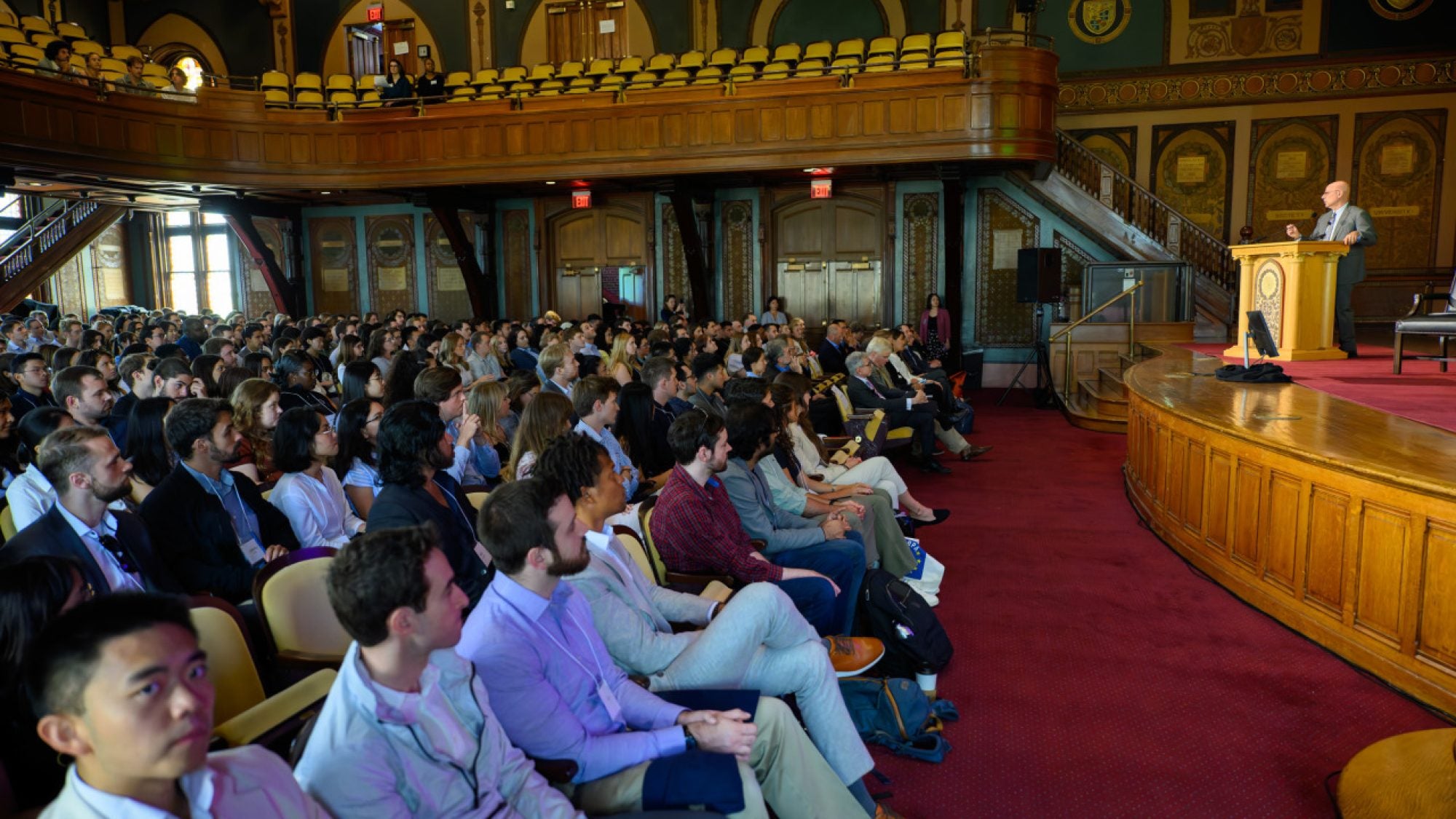Welcome to SFS – the oldest school of international affairs in the United States and the very best school of international affairs in the world.
SFS is a school with a mission. Our students enter this school at one of the most consequential moments in our history. We come together in the midst of war and the tremendous suffering that war brings. We come together in the midst of humanitarian crises that have placed so many innocent lives in peril. We come together when authoritarian leaders are increasingly restricting the rights and freedoms of their peoples, and particularly the rights of women over their own destinies. We come together at a moment when too many hostages and political prisoners languish in captivity, not for what they have done but for what they represent. And yet there are still signs of hope. Student movements are mobilizing to fight against corrupt leaders, as we saw this summer in Bangladesh. Elections are underway – with real consequences – for nearly half the world’s population. Strap yourselves in, as this is an incredible time to be at SFS.
Being the oldest and best school of international affairs comes with an obligation. We have an obligation to ask the tough questions. We have an obligation to challenge conventional wisdom and to think outside the box. This is the place to probe, to test, to innovate, to challenge — all in the hope of coming up with new ways to address the world’s most complex problems.
If we are doing our job, your diplomacy and sometimes even your core beliefs will be tested in classrooms, in your dorms, and by our seemingly never-ending schedule of visiting speakers. Your teachers, our speakers and your classmates, hailing from 52 countries around the world, will challenge you, will provoke you, and on occasion will even offend and enrage you. Some of them will protest. Many of them will circulate streams of clever and not-so-clever memes and tweets. And I will get a lot of emails and phone calls – from parents, from alumni, from Congress, from DoE, etc – complaining about what is said or done on our campus. But let me make one thing very clear at the start: We are not here to protect students from difficult views.
This campus must be a space for our students and faculty to question, to engage in debate, to express their passions, and to shake the maddening complacency of others. Some will overstep and over-reach. That’s all part of the process of discovery and learning on a college campus.
But I also want all of us at SFS to remember two things. First, among you are not just people who relish the verbal sparring and rough and tumble of debate. Sitting among you on this campus are Gazans who are suffering from the loss of so many loved ones and whose families feel the pain of searching for food, housing, and schooling for their children. Sitting among you are Ukrainian students whose parents have to shelter in basements and subways in fear of nightly attacks. Sitting among you are Sudanese facing imminent starvation. Sitting among you are those whose families have been impacted by heinous acts of terrorism. Sitting among you are those who have been forced to flee their homes and their countries in the largest wave of forced migration that the world has ever seen. And sitting among you are soldiers who have served or will serve their country, defending freedom, fighting off invaders, or defending the rights of their states to exist. There are people on this campus who have lived and are living through the trauma of the theories we study here. It is very real to them.
So I want all of you to remember that when you make your arguments, when you spark your debates, when you play Devil’s advocate, that there are people here whose lives have been and continue to be deeply impacted by the crises that we are studying. They deserve respect and recognition, even as we disagree on the root causes of the challenges that confront them.
But also, let’s remember that this is a school of diplomacy. In our classrooms, we will learn about the history of diplomacy. We will examine case studies of key diplomatic events. But we don’t just study diplomacy here, our task is also to teach you how to practice diplomacy – how to engage across difference with tact, grace, subtlety, decency, and flexibility all towards the goal of seeking durable, tractable solutions. If we worry about the political polarization gripping so many parts of the world, if we fret about the coarseness of our political arenas, if we are concerned about the increasing grip of autocrats, then we must model a different approach. We must model the way to work together, to seek compromise across differences, and to generate new solutions to our most complex problems.
And frankly, if we as a school of diplomacy can’t do it, how can we expect anyone else to?
That is what it means to join the oldest school of international affairs in this country and the very best school of international affairs in the world. And that is an obligation that you take on today as you join our community.”
